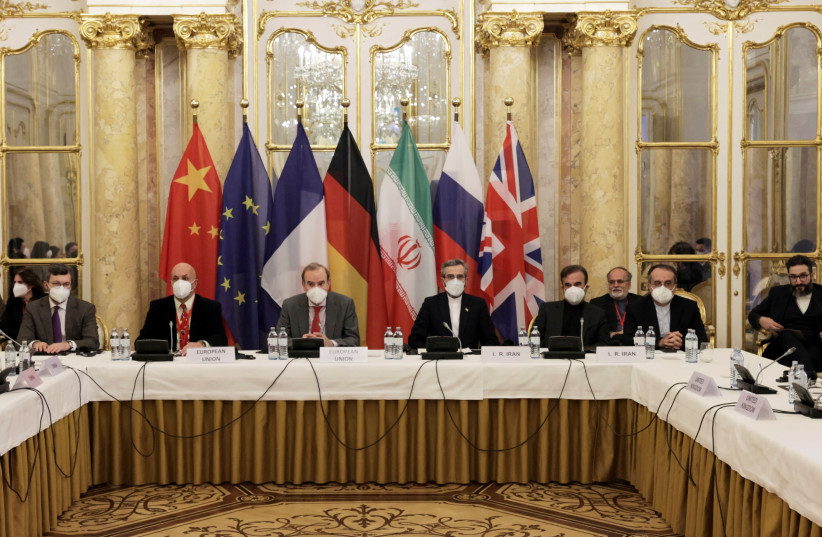Iran thinks it is making progress at the Vienna talks as it works to get the US and others to relieve sanctions.
Tehran thinks dragging out the talks, with Russia’s backing, will enable it to get what it wants. The Biden administration seems annoyed at how Iran is conducting itself. Nevertheless, the Europeans and other Western powers see it as in their interest to keep going. Iran knows its adversaries want success in Vienna more than Iran needs one.
Iranian Deputy Foreign Minister Ali Bagheri announced after recent meetings that this seventh round of talks had included two documents that will be the basis for future negotiations. Iran believes the talks will resume. It says one document relates to the lifting of sanctions on Tehran.
The three European members of the negotiations in Vienna believe Iran is making more demands as time goes by, according to Iranian media. Tehran, meanwhile, says it is continuing to enrich uranium in violation of the 2015 deal, and that it does this because the US left the deal and put sanctions on Iran.
These are high-stakes games that Iran is playing. Tehran now plays up how Russia and Iran are cooperating.
Russia appears to be using Iran as a kind of blocking tackle against the West. This comes as Russia has also made demands on the West as the US accused it of massing troops on Ukraine’s border. Bagheri, Iran’s chief negotiator, has said, “Some actors insist on their habit of blaming instead of real diplomacy.”
Russia has implied that the next round of talks could be the final one. This apparently means something will come out of it. Iran’s media has played up the Russian comments. Russia’s permanent representative to Vienna also noted that Western participants in the negotiations seem to have a better understanding of how to pursue the right policy.

According to Bagheri, “The outcome of the talks to date has met the expectations of the Russian side, and the main result is that no one has tried to underline the results of the previous six rounds of negotiations and start from scratch,” Tasnim News in Iran said this weekend.
